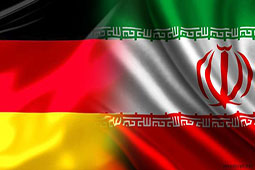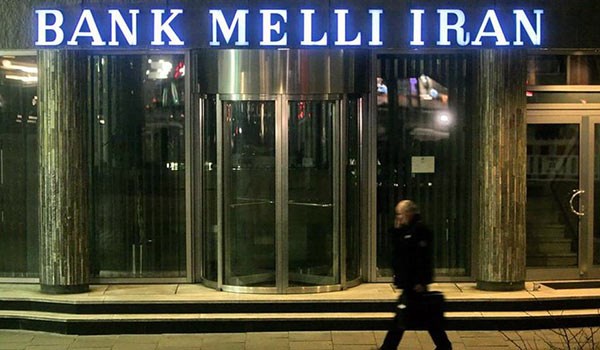
German Court Orders Deutsche Telekom Company to Reactivate Iranian Bank's Services


Deutsche Telekom, a partly state-owned telecom provider, was tasked with Hamburg District Court to lift a ban on Internet and phones services of Bank Melli Iran.
The German court ruling's came after Bank Melli filed a complaint against the German telecoms company for abrupt cutting off phone and internet services for Bank Melli Iran and two other Iranian banks earlier this month for what it called doubts about their future solvency in the wake of the US sanctions on Iranian financial institutions.
In a preliminary injunction, the Hamburg district court ordered Deutsche Telekom to reactivate the services for Bank Melli, arguing that the justification was not sufficient for a termination without notice, especially as the bank has so far fulfilled its obligations and has sufficient resources, Der Spiegel reported Friday.
A court spokesman later confirmed the Spiegel report, telling the Deutsche Presse-Agentur (DPA) that the injunction had originally been issued on Tuesday.
Deutsche Telekom’s move to discontinue its services for Bank Melli came after the bank even offered to pay the bills for one year in advance.
Both Der Spiegel and the DPA questioned the company’s account, writing that the move to disconnect the banks was apparently based on concerns that its T-Mobile subsidiary could be penalized in the US for violating Washington's sanctions against Iran.
Helmut Gottlieb, the director of the Hamburg-based Bank Melli, said it's interesting that a state-owned company like Telekom is giving in to US President Donald Trump’s pressures, specially when neither the German government nor the European Union has issued its own sanctions against Iran.
In addition to Bank Melli, around three dozen companies with roots in Iran are said to be affected by Telekom’s move, including Bank Sepah in Frankfurt and the European-Iranian Trade Bank in Hamburg. Both of them, however, obtained injunctions against the termination of their telecom connections this week.
In an editorial published last Friday, German business newspaper Handelsblatt criticized the Deutsche Telekom’s move as "cynical". It also accused the German government and central bank of "doing nothing" to ensure that Bank Melli can make legal payments to German institutions.
"Where is the help for German companies? Where is the defense of Germany's sovereignty?" the German publication asked.
On November 5, the US Treasury Department reinstated all sanctions on Iran lifted under the 2015 nuclear deal.
According to Treasury Secretary Steven Mnuchin, the sweeping sanctions see 700 people blacklisted, including people who were granted relief under the 2015 deal, as well as over 300 new names.
The Trump administration has agreed to allow eight countries to continue purchasing Iran’s crude oil after Washington’s sanctions on Tehran took place.
Mogherini underlined earlier this month that the EU was trying hard to preserve the JCPOA, and said that efforts were underway to implement the Special Purpose Vehicle (SPV).
"The EU Special Purpose Vehicle for bypassing the US sanctions on Iran is still unknown, but the work was being carried out in a positive manner," Mogherini added.
She reiterated that the involvement of the finance ministers of the E3 (France, Germany, UK) is of key importance at this stage, and said, "They are working hard to finalize it; I cannot tell you a date, but I can tell you that work is continuing and is progressing in a positive manner."
Europeans' honesty in dealing with the Iran nuclear deal is seriously doubted by Iranian masses that are discontent with talks with European counterparts.
In contrast with what European politicians and government are stating, many experts in Iran are suspicious of Europe's genuine commitment to the letters of the nuclear agreement of July 14, 2015, and are voicing their discontent with what they describe as Europe's strategy of killing time.
Even some commentators like Seyed Mostafa Khoshchashm are calling the Iranian government to start meaningful modifications in JCPOA undertakings, and specially remove the cap on the country's enriched uranium stockpile after the US unilateral withdrawal from the agreement; a call which is gaining momentum among the Iranians.


Trump weighs using $2 billion in CHIPS Act funding for critical minerals

Codelco cuts 2025 copper forecast after El Teniente mine collapse

Electra converts debt, launches $30M raise to jumpstart stalled cobalt refinery

Barrick’s Reko Diq in line for $410M ADB backing

Abcourt readies Sleeping Giant mill to pour first gold since 2014

Nevada army depot to serve as base for first US strategic minerals stockpile

SQM boosts lithium supply plans as prices flick higher

Viridis unveils 200Mt initial reserve for Brazil rare earth project

Tailings could meet much of US critical mineral demand – study

Kyrgyzstan kicks off underground gold mining at Kumtor

Kyrgyzstan kicks off underground gold mining at Kumtor

KoBold Metals granted lithium exploration rights in Congo

Freeport Indonesia to wrap up Gresik plant repairs by early September

Energy Fuels soars on Vulcan Elements partnership

Northern Dynasty sticks to proposal in battle to lift Pebble mine veto

Giustra-backed mining firm teams up with informal miners in Colombia

Critical Metals signs agreement to supply rare earth to US government-funded facility

China extends rare earth controls to imported material

Galan Lithium proceeds with $13M financing for Argentina project

Kyrgyzstan kicks off underground gold mining at Kumtor

Freeport Indonesia to wrap up Gresik plant repairs by early September

Energy Fuels soars on Vulcan Elements partnership

Northern Dynasty sticks to proposal in battle to lift Pebble mine veto

Giustra-backed mining firm teams up with informal miners in Colombia

Critical Metals signs agreement to supply rare earth to US government-funded facility

China extends rare earth controls to imported material

Galan Lithium proceeds with $13M financing for Argentina project

Silver price touches $39 as market weighs rate cut outlook

















